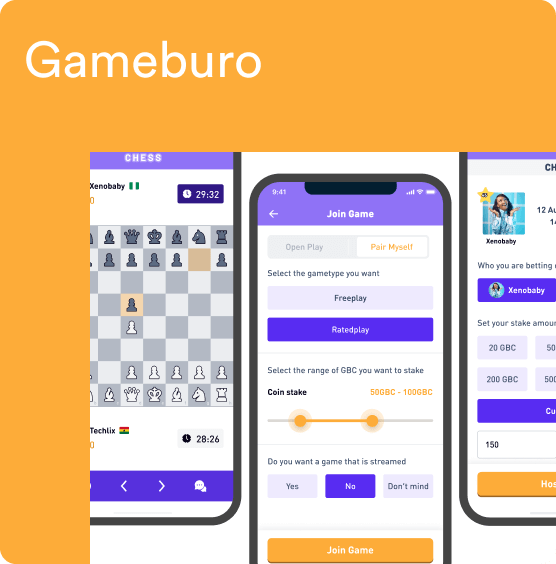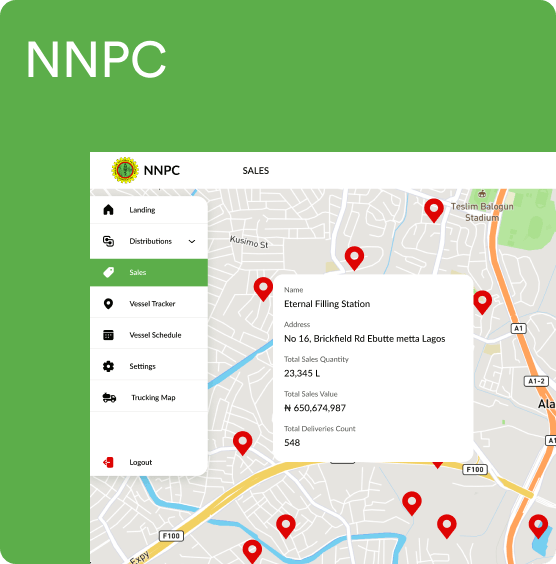TWITTER REDESIGN
The notification feature modification lets Twitter users get timely notifications tailored to their interests and also allows them to browse through categorized user profiles for other users.
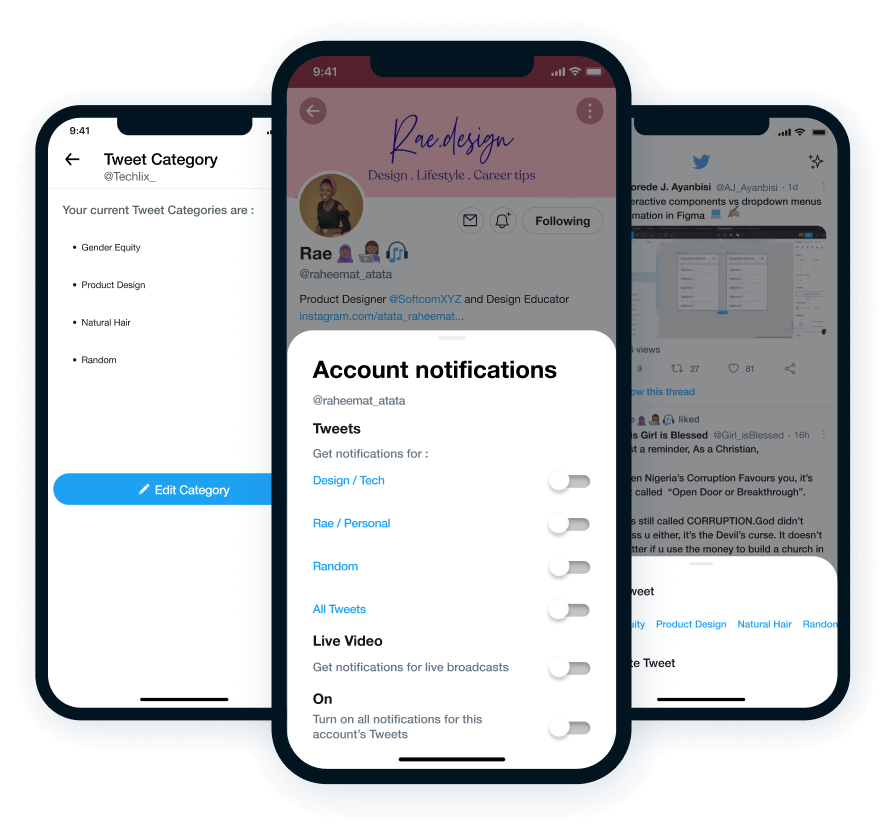
Twitter’s mission is to empower everyone with the power to create and share ideas and information instantly, without barriers. This has given everyone a sense of belonging, knowing that their opinions can be voiced freely. However, as with physical conversations, people’s interests in conversation can vary based on topics.
To help minimize posts on your timeline that may not be of interest, Twitter has the “Topics” feature. It allows you to customize the content seen on your timeline to the news and information that piques your interests.
Unfortunately, this level of personalization is not available for notifications. When you subscribe to a user, you can receive notifications about various topics they tweet or retweet, some of which may not be relevant to you.
- The user is being notified about posts that do not align with why they subscribed to receive notifications for that account.
- Having all tweets and retweets of a user about various topics in a single column can be confusing for another user viewing the profile, making it hard to find the relevant/desired information.
- Navigating through a lengthy list of tweets to find older posts on someone’s profile can be exasperating.
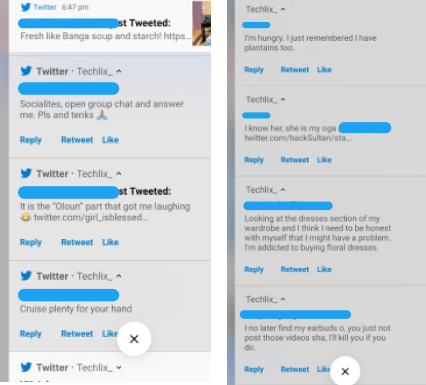
I wish I wasn’t notified about posts like these – it would be better if I could just come across them while browsing my timeline.
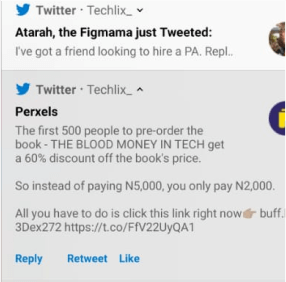
This kind of time-sensitive and valuable info is the primary reason I subscribed to receive notifications. That way, I’m able to stay on top of the latest news, updates, and insights that can help me stay informed
Realising that a user may not always tweet about the same subject, so I began to consider how to solve the issue. I thought that if I could personalise my timeline, then I should be able do the same for my notifications. To determine if there was actually a problem or if I simply didn’t know how to use the app, I used the design thinking process.
I started by looking at existing products, this helped me to know how they have approached the same problems. I was also able to figure out standard patterns in the industry which can assist in simplifying and enhancing the learnability of our own product. Interacting with these products made me see the things they have done right with visible results, and also the ones that could be improved and better suited for our users. To this effect I designed a competitive analysis table which at a glance visually compares all other alternatives
The feature is mainly targeted at Twitter users that:
- Have a medium – large following of people
- Posts contents of diverse topics and categories
- are highly opinionated or chatty
- are popular on twitter for posting contents relating majorly to a particular niche and sometimes other random topics
I developed a research plan to keep me on track and centered on the objectives of the research: exploring how users currently manage notifications on the app and assessing whether users make use of the notification feature.
Using a secondary research methodology, I was able to uncover the quality and advanced features that can help block out duplicated tweets or tweets from bots. Though it’s not useful for unwanted notifications
In a bid to investigate the issue further, I did a thorough review of the Google Play Store to see what other users have experienced with this particular problem. It appears that many of the complaints align with the issues I encountered
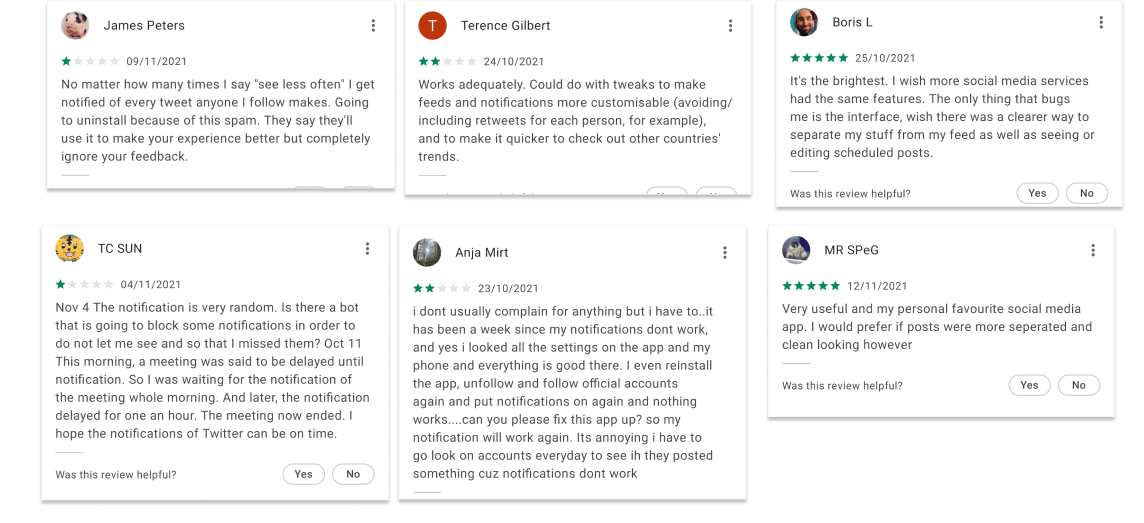
To gain a deeper understanding of users’ perspectives and concerns regarding subscribing to notifications on Twitter, I conducted interviews with eight avid Twitter users. Through these interviews, I was able to learn more about their thoughts on being notified about tweets, as well as any frustrations they may have encountered.
20% of the users prefer to miss out on some information than be disturbed by countless notifications for trivial discussions
Few of them tried to solve the problem by disabling push notifications but still have to deal with it on the app in the notifications tab
Some of the users only use the notifications feature to set apart tweets they will focus on once they are inside the app
To gain a better understanding of the social media market, I conducted an analysis of direct competitors to identify their strengths and weaknesses, as well as potential opportunities to capitalize on. By doing so, I was able to gain valuable insights into the competitive landscape and better inform my strategic decisions.
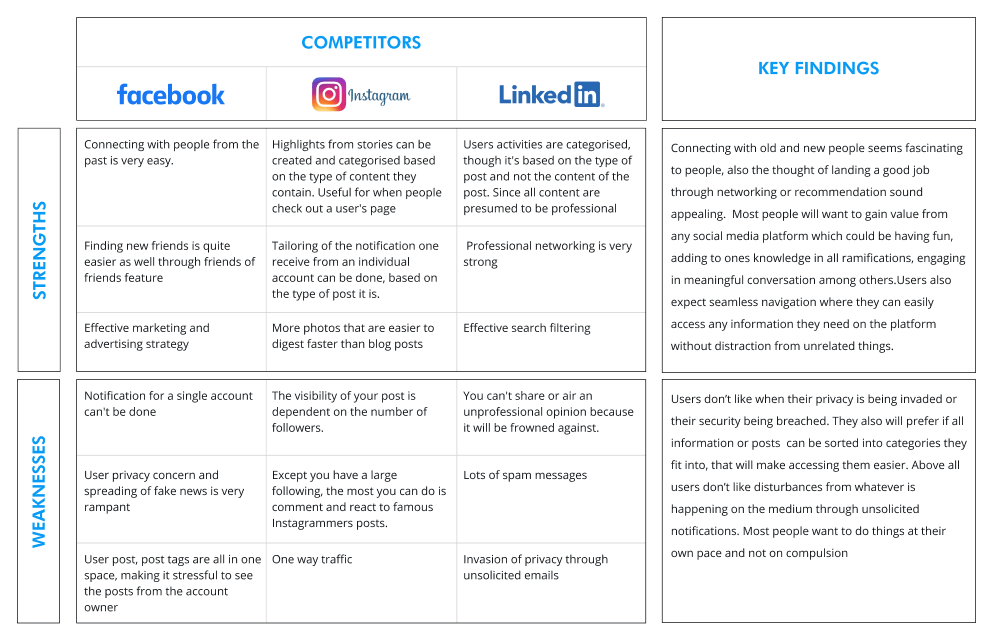
With a clear understanding of our users’ needs and goals, I crafted a persona that reflects the characteristics and preferences of a larger population of users. I was able to better understand the needs and desires of our target audience and ensure that my design decisions would meet their needs.
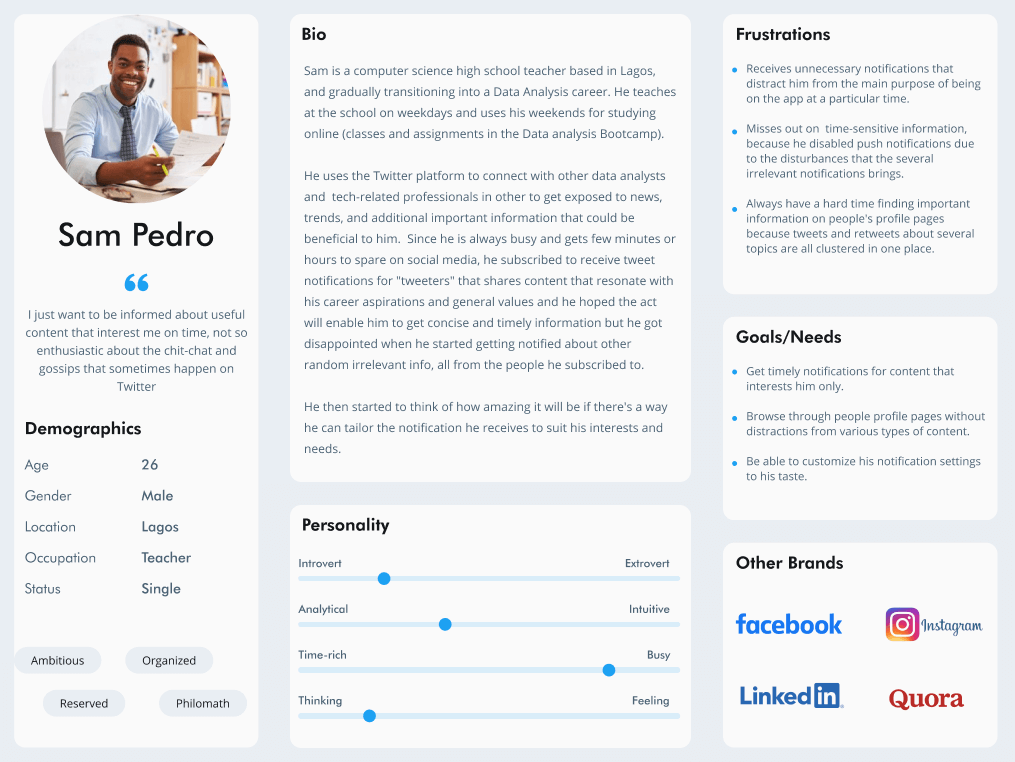
The user research and persona creation identified the user’s main needs, goals, and behaviours. To help solve these problems, I began brainstorming for ideas. Since the application already had an established user flow and task flow, I used the existing framework to sketch out new task flows and a user journey map. This made it easier to recognize the user’s needs and emotions, making them more digestible.
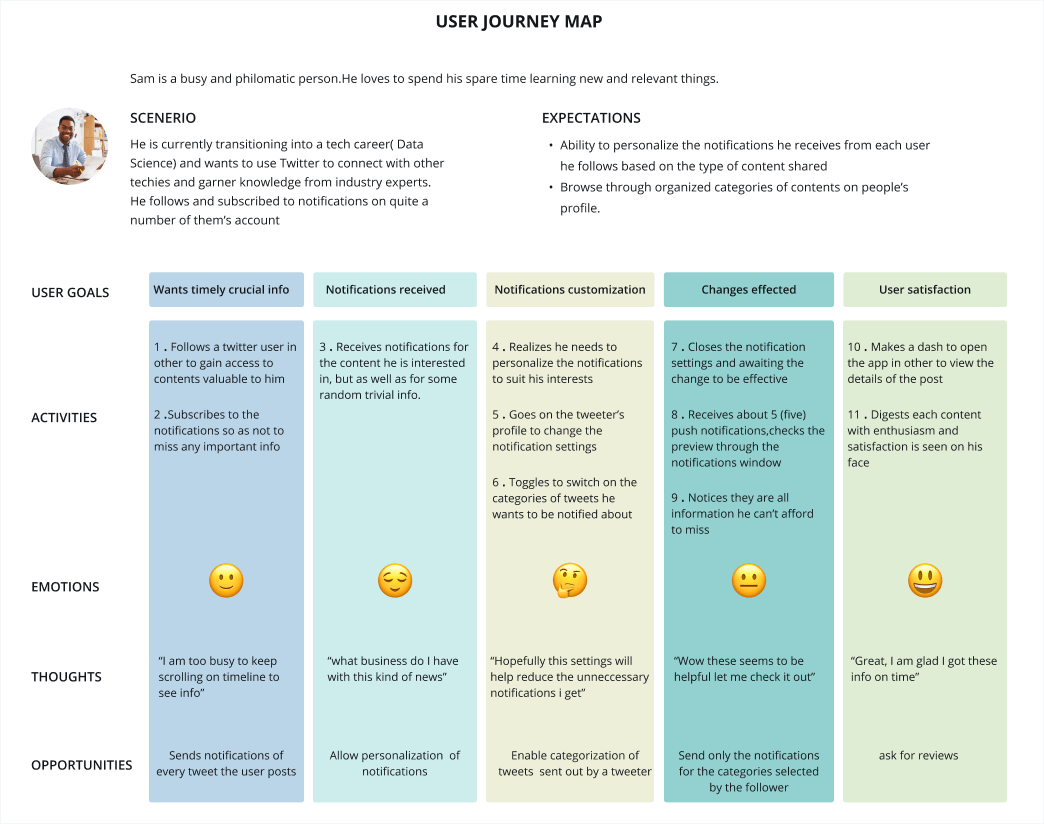
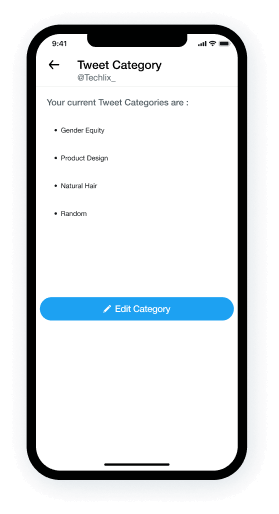
Set the categories of content you are most likely to tweet or retweet about
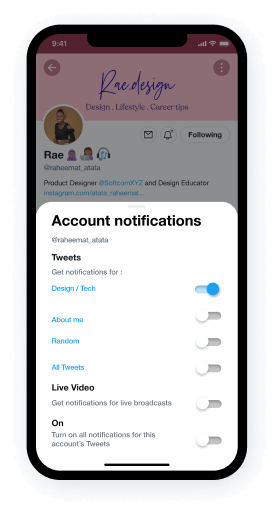
Customize the notifications you receive based on the categories set by the account owner.
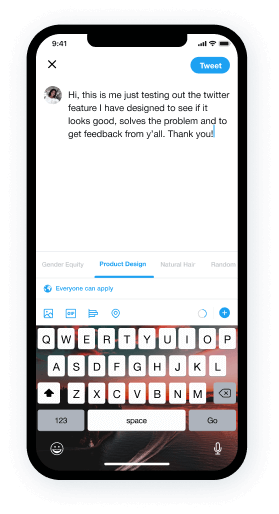
Easily tap on the category a tweet or retweet falls in before sending out.
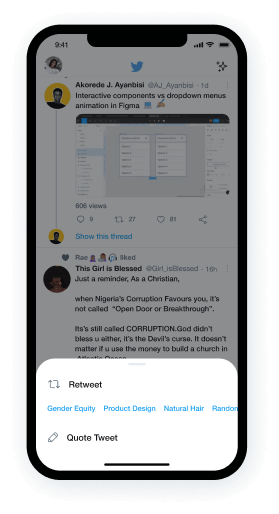
Single tap to retweet a post with the category it falls under chosen
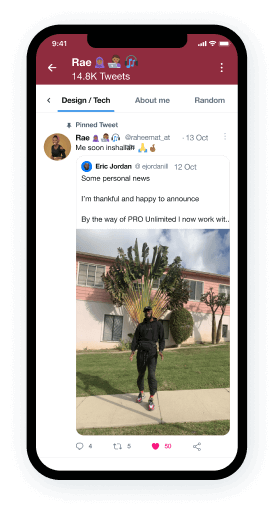
Explore each category of tweets on a user’s profile without interruption from unrelated contents
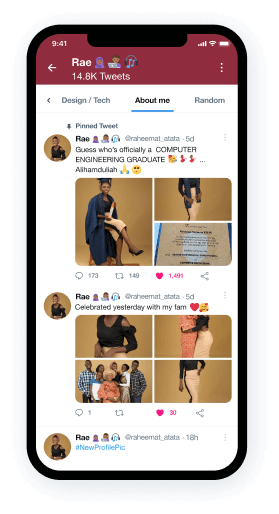
Explore each category of tweets on a user’s profile without interruption from unrelated contents
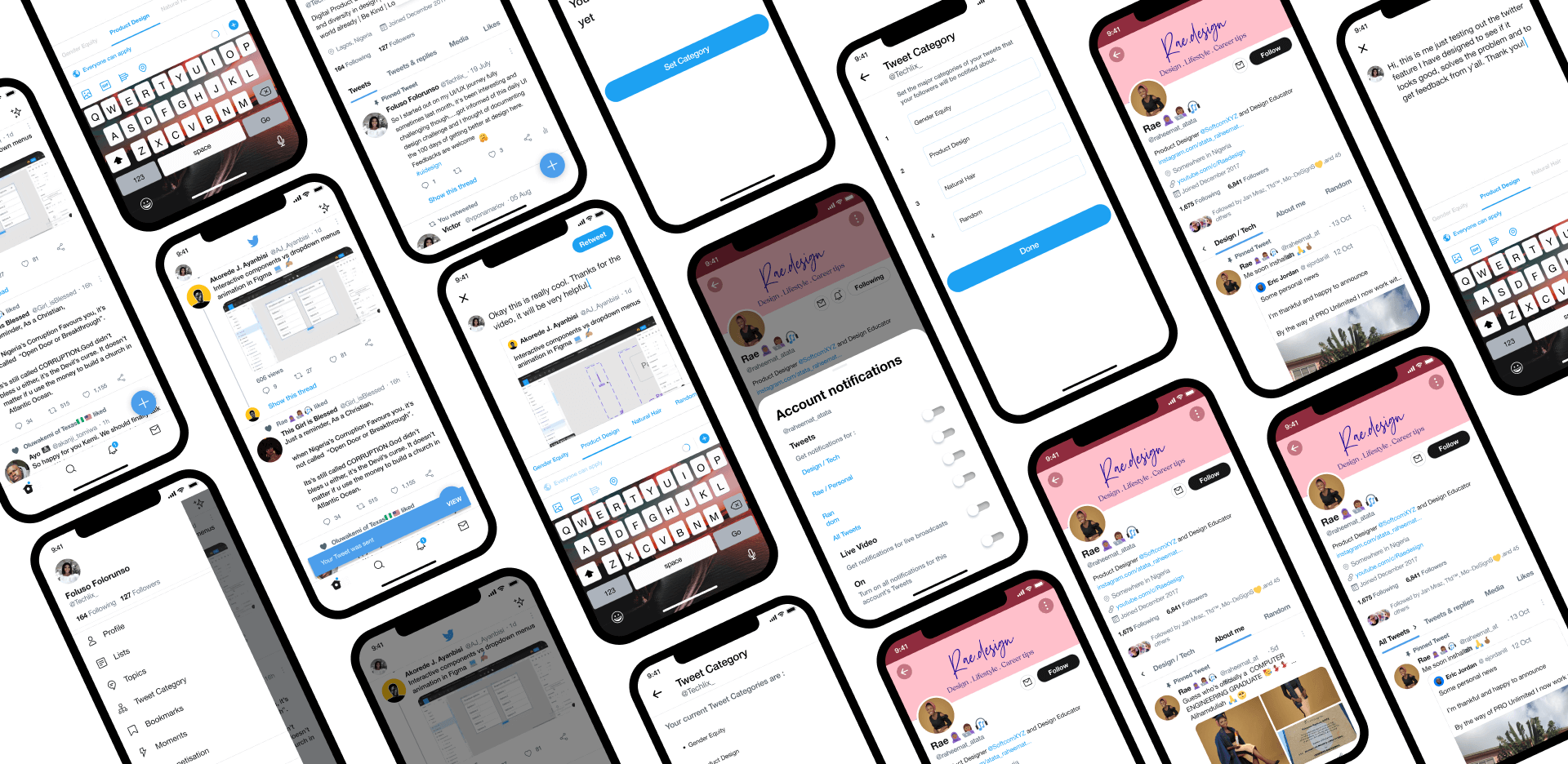
Carrying out unmoderated remote usability testing with Maze and onsite testing with eight Twitter users, I sought to gain feedback by assessing user satisfaction for the new feature, as well as identifying any usability and accessibility issues. For this purpose, six tasks were assigned to the participants, which covered the feature’s functionality and purpose.
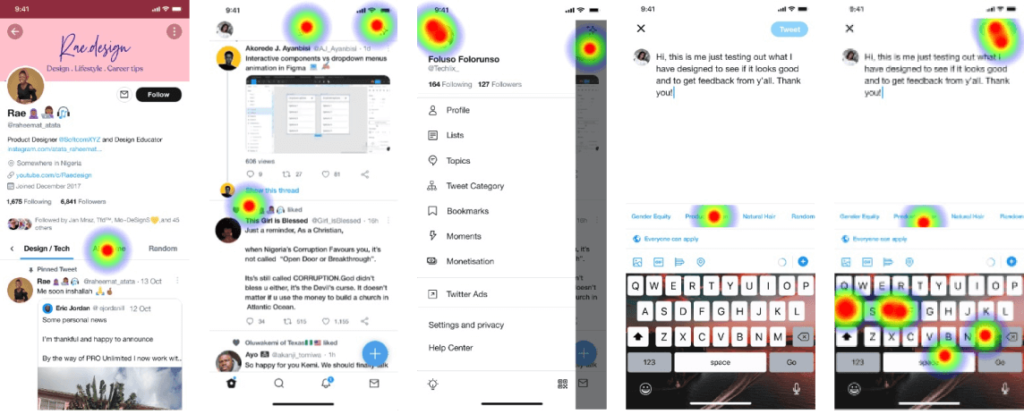
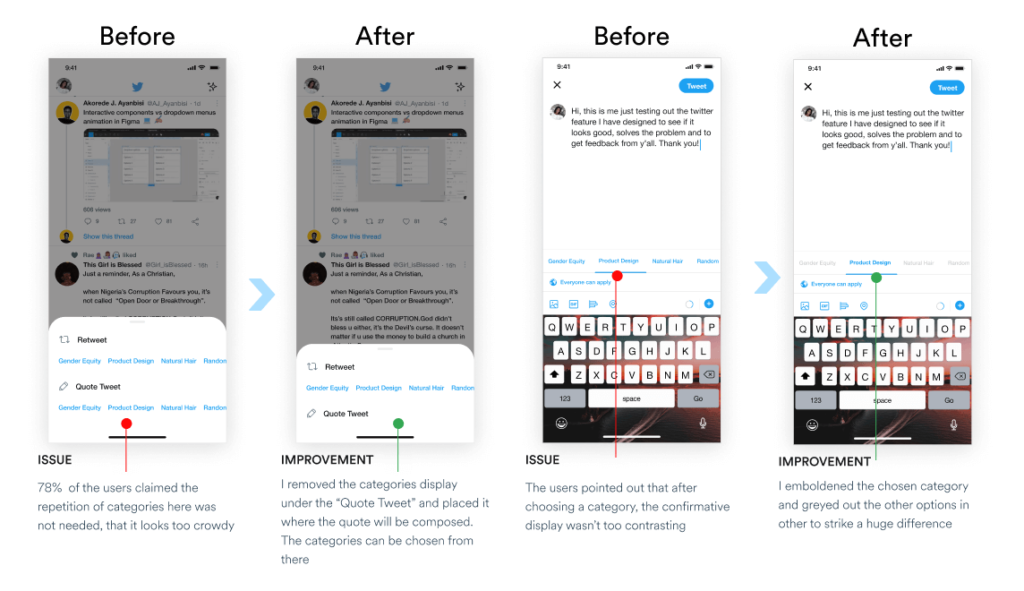
It was an enjoyable experience working on the project – began as my issue, but soon realised others were encountering the same difficulty. Invigorated to solve the problem, I dedicated lots of attention to the application, attempting to comprehend the operation of each feature.
- It was an enjoyable experience working on the project – began as my issue, but soon realised others were encountering the same difficulty. Invigorated to solve the problem, I dedicated lots of attention to the application, attempting to comprehend the operation of each feature.
- My alignment and spacing were improved significantly by designing directly from the screenshots of the app, ensuring that the design matched the look and feel of the real app.
I believe that conducting further research and testing with people from diverse backgrounds and cultures is essential for the successful development of this global product. Doing so will provide insight into how the feature can improve user satisfaction in different regions and how the experience can be improved.
The addition of this feature has a high chance of reducing user frustrations, increasing user engagement, fostering a platform that is both diverse and inclusive, and encouraging more people to use the app to curate meaningful information or do business, consequently increasing the company’s revenue.
Thus, I would be delighted to discuss the viability of this feature addition with the product design team at Twitter.

